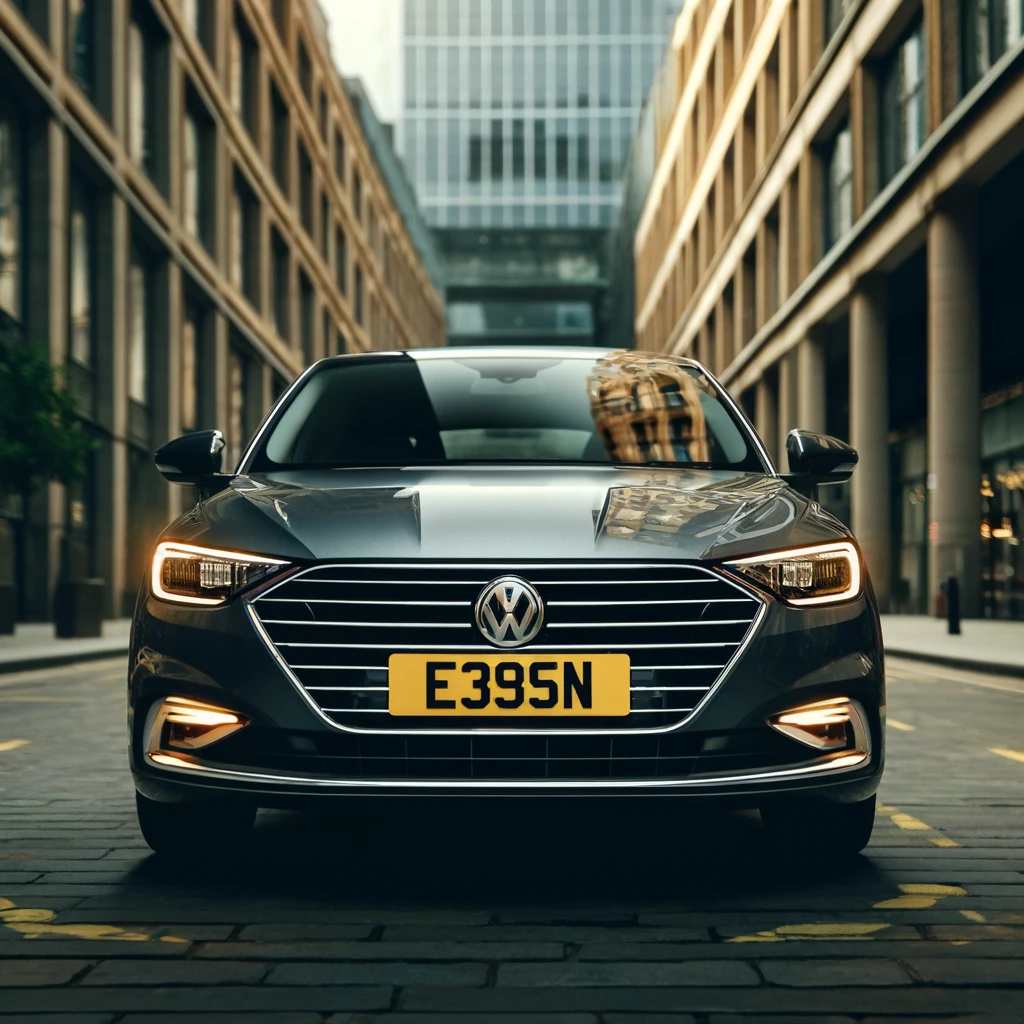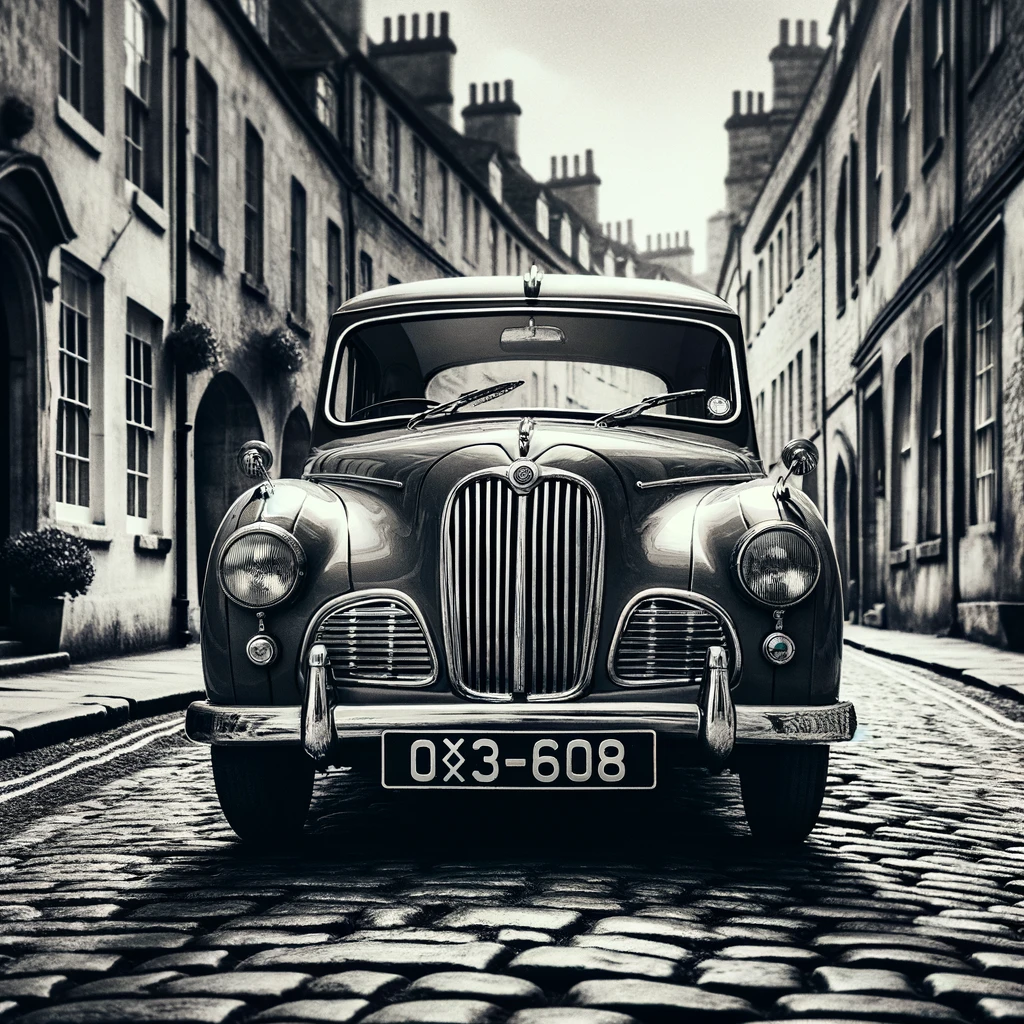The significance of number plates in the UK extends far beyond their basic function of identifying vehicles.
They contain a vehicle's history, origin, and even its age, making them a topic of considerable interest among car owners and enthusiasts.
Even with custom plates created with a plate builder, these must align with UK regulations.
This article sets out to reveal the various types of UK number plates, their formats, legalities, and the unique stories they tell.
New/Current Style Number Plates

Since their introduction in September 2001, the new or current style of UK number plates has followed a specific format designed to provide detailed information at a glance.
This format begins with two letters that signify the region where the vehicle was registered, offering insight into its geographical origins.
Following these are two digits indicating the vehicle's age, providing an easy reference to determine the car's registration date.
The concluding three letters are randomly assigned, ensuring each number plate is unique.
This structure not only facilitates vehicle identification but also enhances the efficiency of law enforcement and administrative processes.
Prefix Style Number Plates
Before the adoption of the current format, the prefix style was the standard from 1983 up to the transition in 2001.
Characterised by a single letter at the start, this system straightforwardly indicated the year of the vehicle's registration, allowing for an immediate understanding of a car's age.
Initially designed for annual updates, the system evolved to include bi-annual changes, significantly enhancing the precision of age identification for vehicles.
Notably, this evolution marked a significant advancement in the registration process, accommodating the increasing number of vehicles on the road.
Despite its replacement, the prefix style retains a special place in the hearts of many car owners and enthusiasts.
Its historical significance, coupled with the clear demarcation of a vehicle’s registration year, continues to appeal to those who appreciate the blend of nostalgia and utility it offers.
Suffix Number Plates
The suffix number plate system, operational from 1963 until its conclusion in 1983, added a letter at the end of the plate to denote the year of the vehicle's registration.
This innovative approach provided a solution to the growing need for a systematic method of vehicle identification, setting a precedent for future systems.
While no longer issued, suffix plates are valued for their historical significance and are a popular choice among classic car enthusiasts looking to maintain authenticity.
Dateless Number Plates
Dateless number plates are characterised by their lack of an explicit year identifier, making them highly prized among collectors and those seeking quality for their vehicle's identity.
Their format, which can be a blend of numbers and letters in various combinations, is unrestricted by the conventions of later systems.
This ambiguity regarding the vehicle's age adds to their allure, making them a sought-after commodity in the classic and vintage car communities.
NI Number Plates
Distinctively, Northern Ireland number plates maintain a format that often begins with ‘I’ or ‘Z’, setting them apart from those issued in other parts of the UK.
This not only highlights the vehicle's regional registration but also adds a layer of individuality to the plate.
This is subject to the same standards as those in the rest of the UK.
Northern Ireland plates must comply with visibility and recognition requirements, ensuring consistency across the country.
Which Number Plate Styles Are Legal?
The legality of different types of number plates in the UK is determined by strict regulations that outline acceptable spacing, font, and materials.
These guidelines are designed to ensure that plates are not only readable but also meet standards that support vehicle identification and safety.
All types of number plates discussed comply with these regulations, provided they adhere to the specified guidelines.
This allows motorists to express their individuality while remaining within the bounds of the law.
Are Old Style Number Plates Still Legal?

Old-style number plates continue to be legal for use on UK roads.
However, they must meet current standards for legibility and reflectivity.
This requirement ensures that while these plates may carry a vintage or historical aesthetic, they do not compromise on safety or visibility.
This means they need to align with contemporary standards for road use.
Buy Personalised Number Plates
Personalised number plates offer a unique avenue for vehicle owners to express their personality, interests, or identity through their vehicle registration.
This customisation not only allows for a distinctive presence on the road but also ensures that each plate adheres to the legal standards set forth by UK regulations.
The process of acquiring these plates is straightforward, offering an extensive range of customisation options to suit individual preferences.
Demon Plates stands at the forefront of providing personalised number plates, combining quality with compliance with UK standards.
For car owners and enthusiasts looking to infuse their vehicles with a touch of personal flair, we invite you to contact us and discover the possibilities that custom number plates offer.
